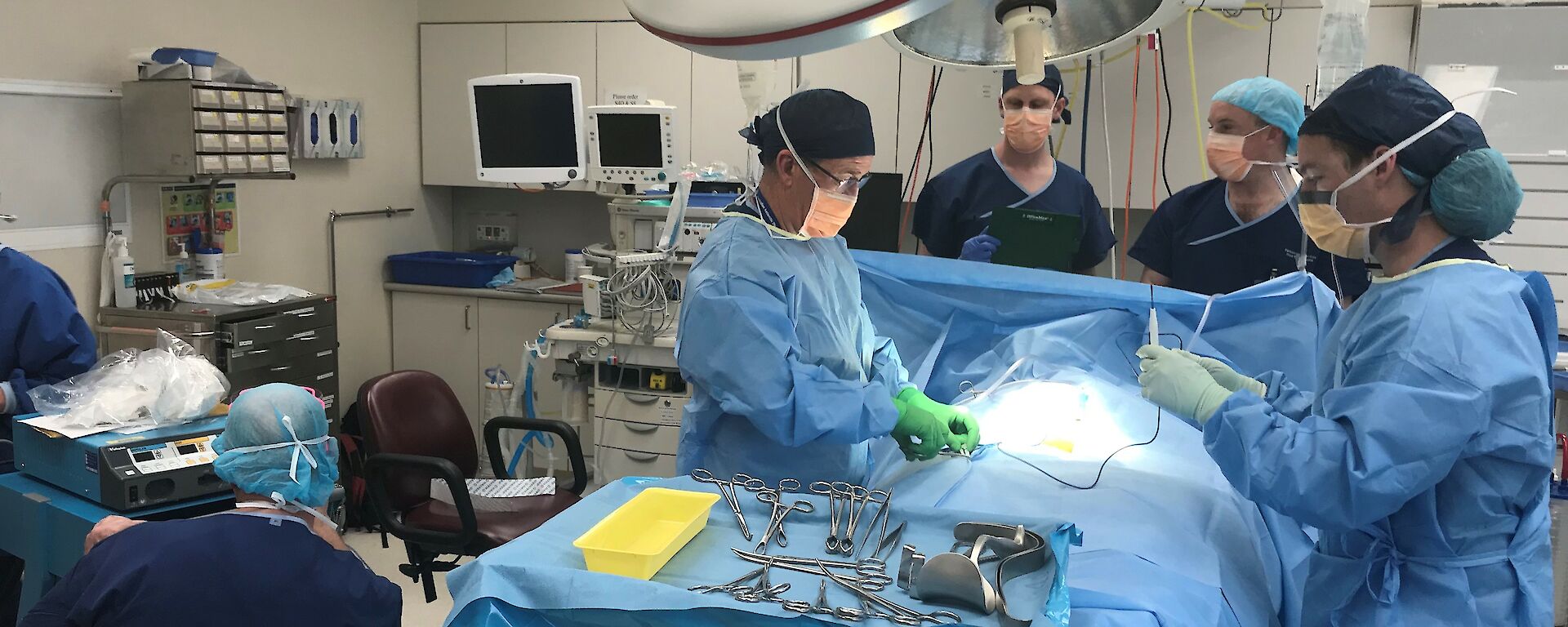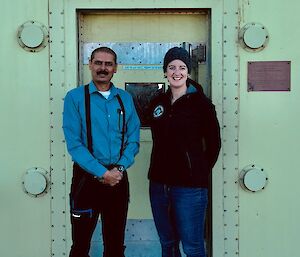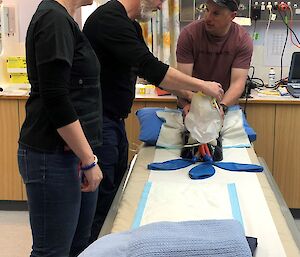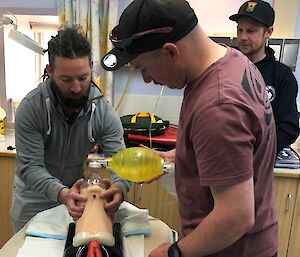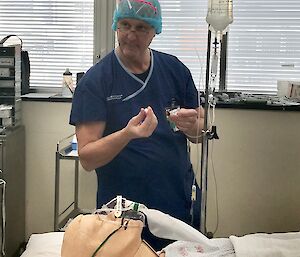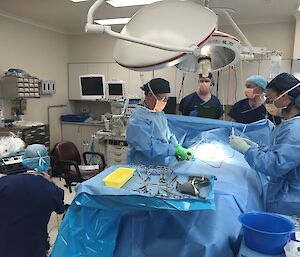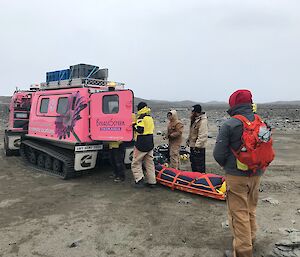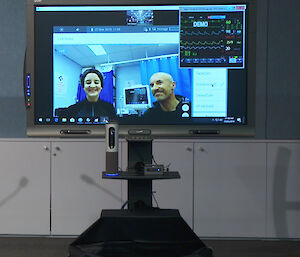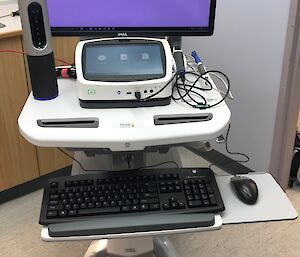How many doctors are on station?
I am a solo doctor over winter, except briefly when Dr Vikram Hedge popped by in a helicopter from the Indian Bharati research base (but we only had time for a cup of tea together). There are no other medical staff on station but we do have a crack team of assistants who more than make up for it.
They give you assistants?
Yes! Four winter expeditioners are selected each season to undergo an intensive two-week training program at the Royal Hobart Hospital. This year the focused training turned Luke our diesel mechanic into a surgical assistant; electrician Paul became a scrub scout; and boilermaker Kieran, plus Neil, one of our plumbers, are our anaesthetic assistant team.
This whole process is amazing to watch and I visited the hospital to see them in action on their exam day. I was well impressed with their new skills and the way they tied Luke’s dreadlocks back so neatly. We have also roped in an extra set of safe hands by getting the Field Training Officer (FTO) Glenn involved which increases our team to a group of six.
What difference does having assistants make to your role?
Without this refined group of assistants, my role as occasional anaesthetist and occasional surgeon would not be possible. I need someone to help me monitor the anaesthetic while I am concentrating on the surgery. Hopefully we never need to use these skills though!
How do you all keep your skills up over the season?
When we arrive on station the training continues, with time set aside for us to practice skills, rehearse scenarios and be ready for any medical response. During our final search-and-rescue practice before the winter began, we checked our capability to retrieve an injured person safely from the field with success. We regularly discuss and rehearse a surgical response requiring a patient to have an anaesthetic, in a situation we hope we never have to do!
Are you ready for anything?
The range of medical or surgical emergencies that could potentially happen on station is infinite. It is impossible for us to be specifically trained for all eventualities, but we are taught an approach that can be applied to any situation. Our training has prepared us well. If something happens we are not alone because we have strong medical topside support from the Polar Medicine Unit (PMU) at Head Office in Kingston, who are on call for us 24 hours a day.
What’s changed since your last stint for the Antarctic Division in 2014?
The biggest difference is the improved telehealth capabilities. Communications from station have improved and this season has seen the arrival of our telehealth hub — it is a game changer. We can now potentially perform surgery with a surgeon on the screen assisting us step by step. We can also request real-time consultation with doctors, physiotherapists and dentists in Australia that PMU organise for us.
What would you tell all the mums at home who are worrying about their kids on station?
Don’t worry Mum, the world-class medical facility brings peace of mind to us and it should for you too. We are a long way from the sophisticated Australian hospitals but telehealth brings us closer to home when we need assistance. Plus, we are well-trained and well-prepared and the doctor, plumber, boilermaker, electrician, dieso and the FTO have got everything under control.

